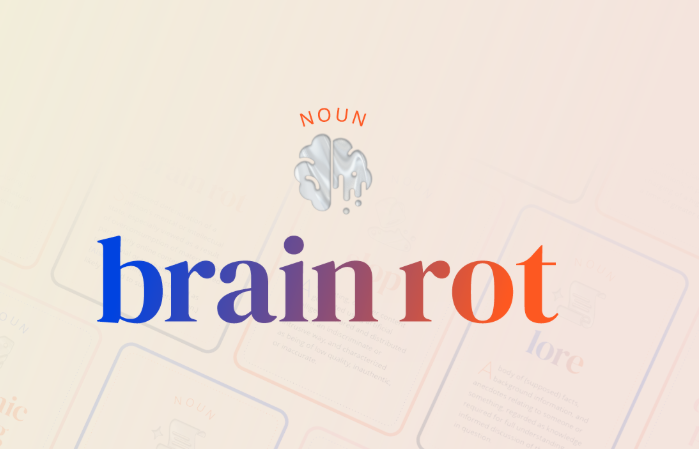"Brain rot" was announced by Oxford as the word of the year 2024, reflecting concerns that endless scrolling on social media can cause mental and intellectual decline, especially among young people.
“Brain rot” is not a completely new word, but in today's context, it is used to describe the decline in thinking ability caused by consuming too much meaningless content on social media.
According to Oxford, the word first appeared in Henry David Thoreau's "Walden" in 1854. Today, the term "brain rot" is widely used by young people on social media platforms to describe a "decline in intelligence or mental health" due to consuming too much worthless content, mostly short videos, memes or posts of trivial entertainment. This shows a distinct change in the way young people use language and perceive the world around them.
According to the New York Times, in the past year, the frequency of using the word "brain rot" has increased by 230%.
Casper Grathwohl, president of Oxford Languages, the dictionaries division of Oxford, said the rise of “brain rot” reflects the rapid change in language driven by social media. “With ‘brain rot,’ it’s a phenomenon where young people on TikTok are rapidly creating a new language trend within minutes of using it themselves,” he said.

Oxford chose “brain rot” after analyzing more than 26 billion words from news sources around the English-speaking world. The goal of Oxford was to reflect the “mood and conversations that shaped 2024” through the data collected. As in previous years, Oxford invited the public to vote for its word of the year, with more than 37,000 people voting. However, the final decision on the winner was made by Oxford’s panel of experts.
"Brain rot" strongly affects the perception of students and young people
Studies have shown that Internet use can cause serious and lasting changes in cognition, especially related to attention and memory, and can even alter the gray matter in the brain.
Constantly surfing the internet negatively affects thinking skills by disrupting the brain's ability to encode and retain information. At the same time, constant stimulation from digital devices can lead to a decrease in concentration.
For example, a study of 1,051 young adults aged 18 to 27 found that social media addiction was negatively associated with executive thinking skills such as planning, organizing, problem solving, decision making, and working memory.
Self-perception is also affected by this behavior. As social media interactions have increased, the online world has become a separate social universe, especially for young people. The number of “friends,” “followers,” and “likes” you have is publicly displayed, making comparisons common.
Additionally, a constant barrage of posts boasting about career success, lavish vacations, happy relationships, or perfect looks (often heavily edited) can easily lead to negative thoughts about yourself. The brain is overloaded with constant stimulation, making it difficult to distinguish between fact and fiction. As a result, self-worth is diminished, leading to increased levels of stress, anxiety, and depression.
To prevent “brain rot,” we must be proactive and conscious about our use of digital media. When you control your screen time, your mental and emotional health will improve dramatically. Here are some effective strategies:
Set screen time limits
Track how much time you spend surfing the web, on social media, watching videos , or playing games. Set a daily limit for screen time.
Remove distracting apps and turn off social media notifications
Avoid using digital devices before bedtime
Select content selectively
Avoid sensational and negative news
Diversify your sources of information for a more balanced view
Unfollow accounts that cause you anxiety and only follow positive, inspiring content.
Pursue real-life hobbies
Explore activities you enjoy: camping, listening to music, playing an instrument, journaling, volunteering, exercising, yoga, meditation...
Connect with positive people in real life
Instead of looking for connection through screens, build real relationships with friends, family...

Source: https://vietnamnet.vn/ly-do-thoi-nao-vi-song-ao-duoc-chon-la-tu-cua-nam-2024-2347983.html





































































































Comment (0)